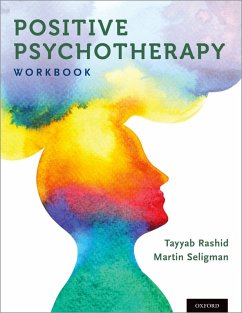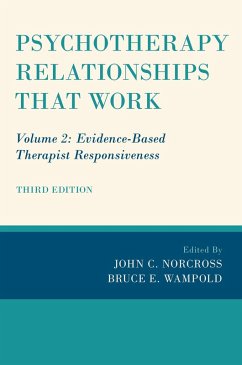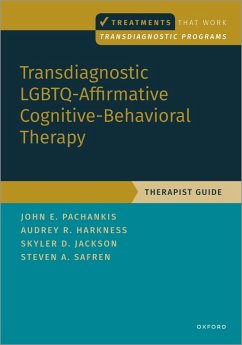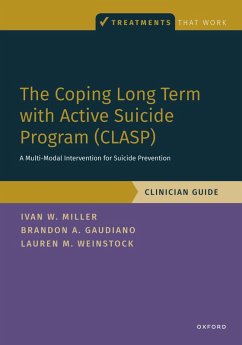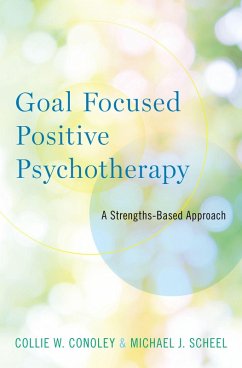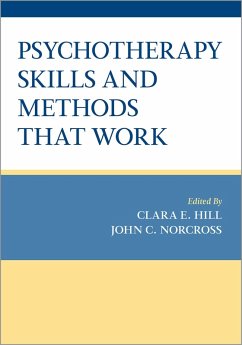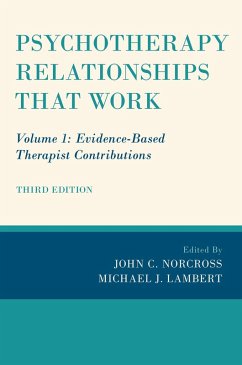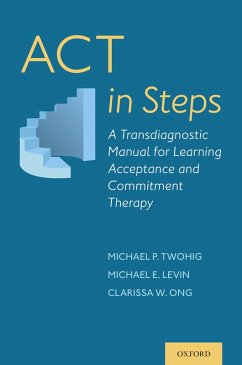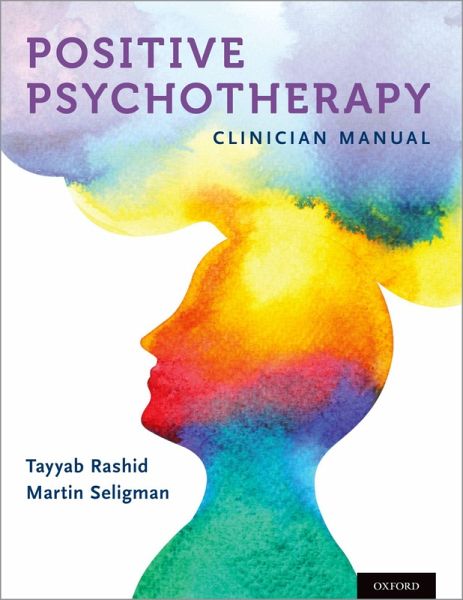
Positive Psychotherapy (eBook, PDF)
Clinician Manual

PAYBACK Punkte
14 °P sammeln!
For over a century the focus of psychotherapy has been on what ails us, with the therapeutic process resting upon the assumption that unearthing past traumas, correcting faulty thinking, and restoring dysfunctional relationships is curative. And indeed, they are - but in the rush to identify and reduce symptoms of mental disorder, something important has been overlooked: the positives. Should enhancing well-being, and building upon character strengths and virtues, be explicit goals of therapy? Positive Psychotherapy provides therapists with a session-by-session therapeutic approach based on th...
For over a century the focus of psychotherapy has been on what ails us, with the therapeutic process resting upon the assumption that unearthing past traumas, correcting faulty thinking, and restoring dysfunctional relationships is curative. And indeed, they are - but in the rush to identify and reduce symptoms of mental disorder, something important has been overlooked: the positives. Should enhancing well-being, and building upon character strengths and virtues, be explicit goals of therapy? Positive Psychotherapy provides therapists with a session-by-session therapeutic approach based on the principles of positive psychology, a burgeoning area of study examining the conditions and processes that enable individuals, communities, and institutions to flourish. This clinician's manual begins with an overview of the theoretical framework for positive psychotherapy, exploring character strengths and positive psychology practices, processes, and mechanisms of change. The second half of the book contains 15 positive psychotherapy sessions, each complete with core concepts, guidelines, skills, and worksheets for practicing skills learned in session. Each session also includes at least one vignette as well as discussion of cross-cultural implications. Mental health professionals of all orientations will find in Positive Psychotherapy a refreshing alternative to symptom-based approaches that will endow clients with a sense of purpose and meaning that many have found lacking in more traditional therapies.
Dieser Download kann aus rechtlichen Gründen nur mit Rechnungsadresse in A, B, BG, CY, CZ, D, DK, EW, E, FIN, F, GR, HR, H, IRL, I, LT, L, LR, M, NL, PL, P, R, S, SLO, SK ausgeliefert werden.




